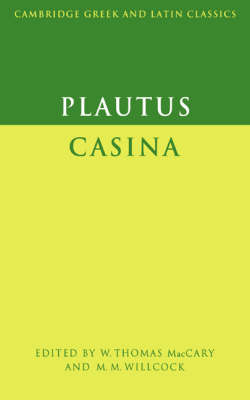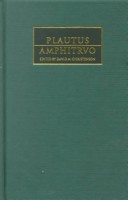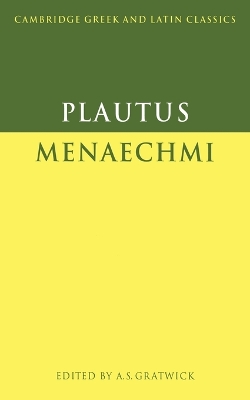Cambridge Greek and Latin Classics
3 total works
Plautus' Casina is a lively and well composed farce. The plot, which concerns the competition of a father and his son for the same girl and the various scurrilous tricks employed in the process, gives full scope to Plautus' inventiveness and richly comic language. The editors' aim is to establish the play as one of the liveliest of ancient comedies, and in their introduction and notes to make the reader continually aware of the conditions of an actual stage performance. They discuss the background and conventions of Roman comedy and by offering a complete metrical analysis they help the reader to appreciate the original musical structure of the play. The edition is intended primarily for use by students at school and university but will be of value to anyone interested in reading the play in the original.
Plautus' Amphitruo is the sole specimen of mythological burlesque in ancient comedy to come down to us in nearly complete form. This sex farce delighted Roman audiences and readers for centuries and continues to inspire adaptations to this day. Dr Christenson utilizes recent work in performance criticism in conjunction with traditional philological analysis to provide new insights into the play in performance. The edition aims to recover the essence of Plautine spectacle from the most concrete details of staging to the complex performative dynamics played out among the actors themselves and the actors and the audience. Included in the Introduction is an account of the mythic and dramatic background to Plautus' play as well as of its influence in post-classical drama. Plautus' metres are explained in a manner students will find helpful and instructive. Dr Christenson presents a new text that includes stage directions in English.
Menaechmi is one of Plautus' liveliest and most entertaining comedies, the main inspiration for Shakespeare's The Comedy of Errors. Dr Gratwick's edition brings new light to bear on the interpretation of the play and on Plautus' place in the development of European comedy. Central to his treatment is the fact that Plautus was a dramatist who wrote to be heard rather than to be read. The various metres which he subtly and flexibly exploited for musical and dramatic effect are here explained in a way that challenges many received views but also offers the student practical assistance in grappling with the technical problems involved both on stage and in performance. The text has been newly constituted on the basis of a complete reappraisal of the manuscript tradition in the light of scholarship since the Renaissance.


